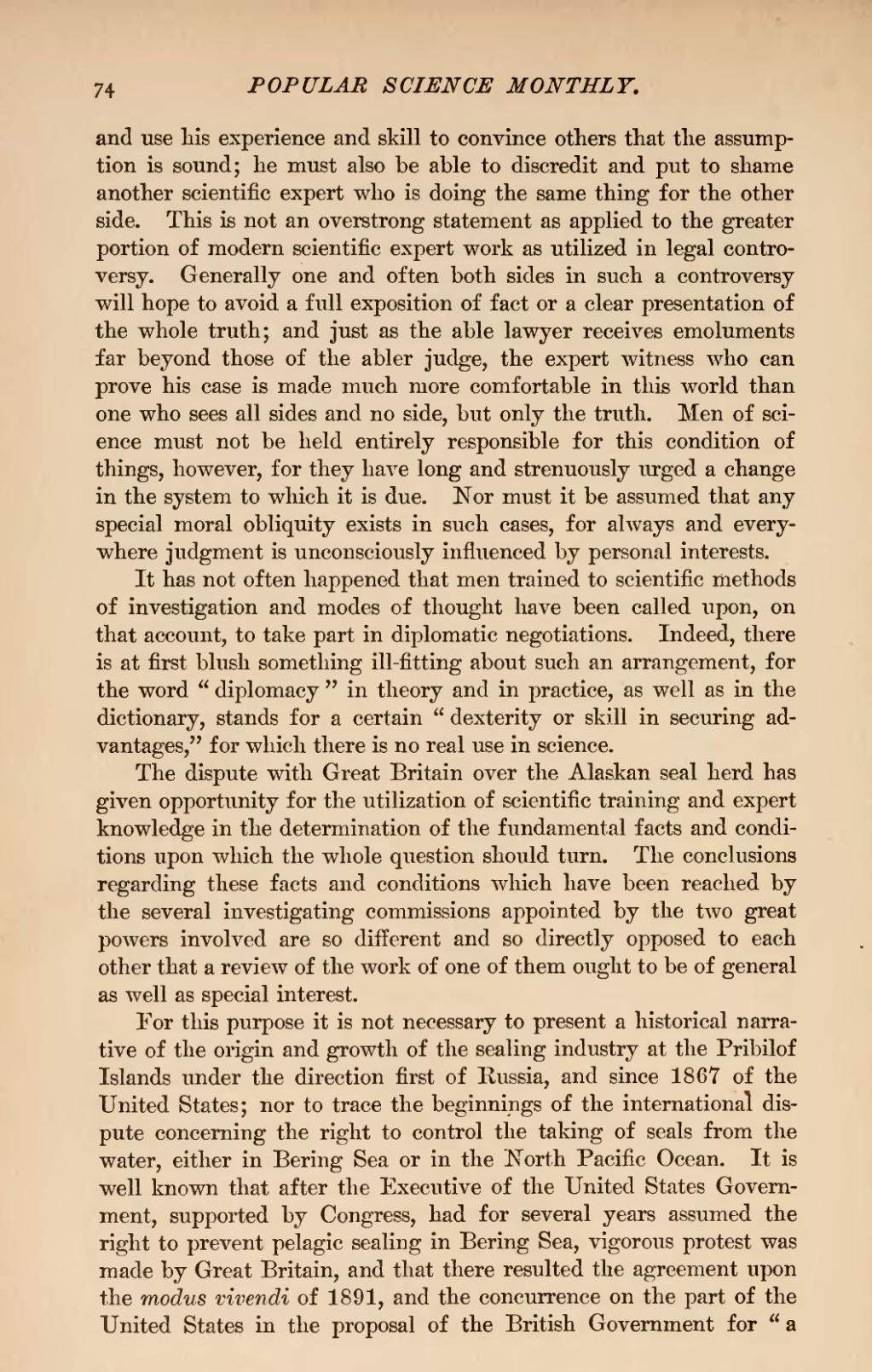and use his experience and skill to convince others that the assumption is sound; he must also be able to discredit and put to shame another scientific expert who is doing the same thing for the other side. This is not an overstrong statement as applied to the greater portion of modern scientific expert work as utilized in legal controversy. Generally one and often both sides in such a controversy will hope to avoid a full exposition of fact or a clear presentation of the whole truth; and just as the able lawyer receives emoluments far beyond those of the abler judge, the expert witness who can prove his case is made much more comfortable in this world than one who sees all sides and no side, but only the truth. Men of science must not be held entirely responsible for this condition of things, however, for they have long and strenuously urged a change in the system to which it is due. Nor must it be assumed that any special moral obliquity exists in such cases, for always and everywhere judgment is unconsciously influenced by personal interests.
It has not often happened that men trained to scientific methods of investigation and modes of thought have been called upon, on that account, to take part in diplomatic negotiations. Indeed, there is at first blush something ill-fitting about such an arrangement, for the word "diplomacy" in theory and in practice, as well as in the dictionary, stands for a certain "dexterity or skill in securing advantages," for which there is no real use in science.
The dispute with Great Britain over the Alaskan seal herd has given opportunity for the utilization of scientific training and expert knowledge in the determination of the fundamental facts and conditions upon which the whole question should turn. The conclusions regarding these facts and conditions which have been reached by the several investigating commissions appointed by the two great powers involved are so different and so directly opposed to each other that a review of the work of one of them ought to be of general as well as special interest.
For this purpose it is not necessary to present a historical narrative of the origin and growth of the sealing industry at the Pribilof Islands under the direction first of Russia, and since 1867 of the United States; nor to trace the beginnings of the international dispute concerning the right to control the taking of seals from the water, either in Bering Sea or in the North Pacific Ocean. It is well known that after the Executive of the United States Government, supported by Congress, had for several years assumed the right to prevent pelagic sealing in Bering Sea, vigorous protest was made by Great Britain, and that there resulted the agreement upon the modus vivendi of 1891, and the concurrence on the part of the United States in the proposal of the British Government for "a
